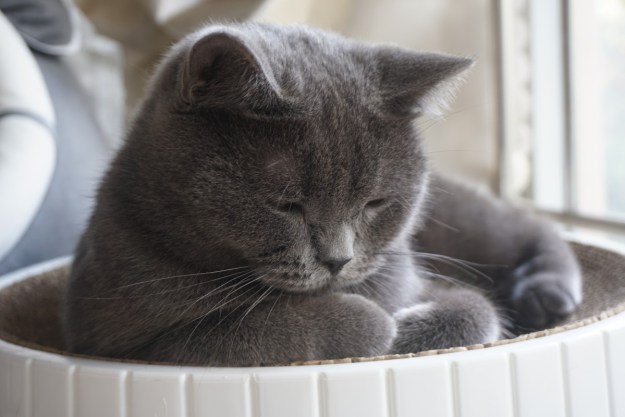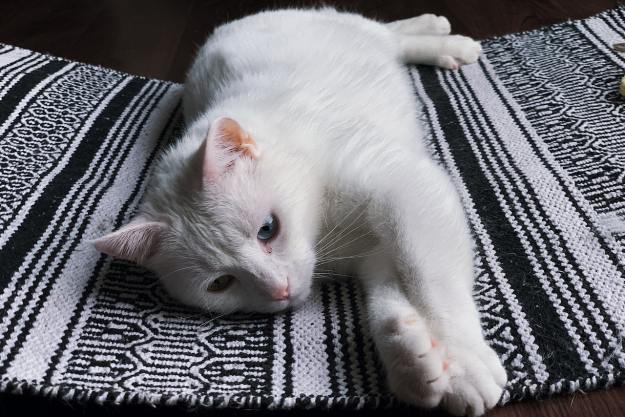If your cat is sneezing, coughing, or has a runny nose, you might think he’s sick. But those can also be symptoms of an allergy. Cats can be allergic to all sorts of different things. For some cats, the cause of their allergies is a central part of their lives: their cat litter. Those allergies get aggravated multiple times a day for a cat that’s allergic to litter. When you understand the signs of an allergy, you can recognize that your cat might have a problem and take the right steps to get to the bottom of it.
Why cat litter allergies occur
The ingredients in cat litter can cause allergies. Clumping litter generally contains silica, which produces silica dust, an irritant known to cause allergies in some humans and animals. Fragrances can also be potentially irritating. While clay litters tend to be the most bothersome, your cat can be allergic to any number of components in any litter.
How your cat uses the litter box contributes to these potential allergies. Cats dig in the box, bury their business, and scratch at the box sides and at the litter. All this activity can stir up dust and irritants, making the issue worse.
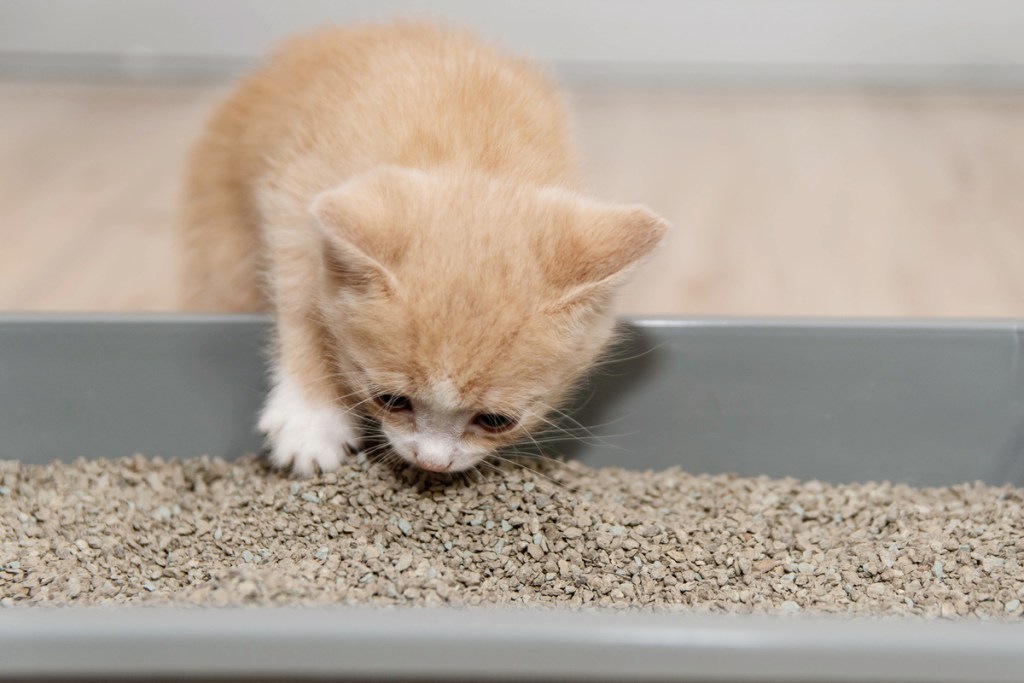
7 signs that could indicate a litter allergy
If you’re asking, “Is my cat allergic to his litter?” there are several signs to watch for. Here are seven common symptoms of a litter allergy.
- Sneezing
- Coughing
- Red, watery, itchy eyes
- Runny nose
- Wheezing
- Frequent scratching and itchy skin
- Facial swelling or swollen, inflamed ears
You might notice one or more of these symptoms, and their severity can vary. If your cat has an allergy and continues using the same type of litter, those problems can worsen.
Initially, you might notice symptoms only when your cat is in or near the box. However, dust from the litter can get stuck on your cat’s paws, and your cat can track it through the house and into his bed. If this happens, then your cat might experience those symptoms no matter where in the house he happens to be.
Your cat will become uncomfortable, and if he realizes that the symptoms are worse when he uses the litter box, he may start avoiding the box.
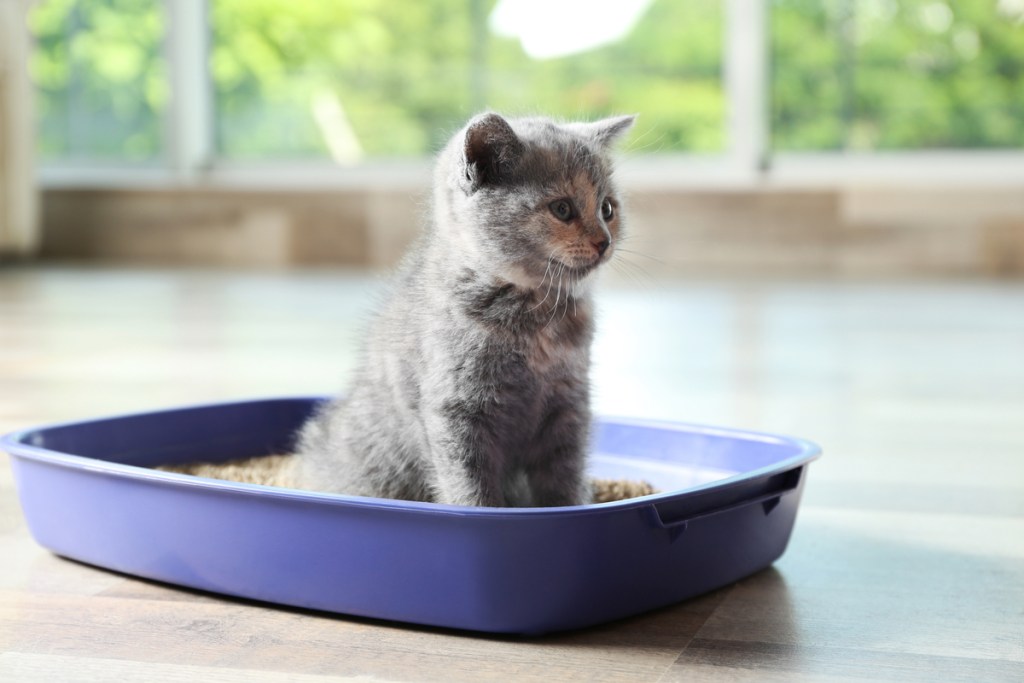
What to do if your cat has a litter allergy
- Change the type of litter. One of the first steps necessary to address a cat litter allergy is to change the type of litter you use. Look for a litter that’s free of the ingredients found in your cat’s current litter. To accomplish this, you’ll probably need to change the litter type entirely. For example, if you’re using clay litter, switching to pine or corn litter can help.
- Thoroughly clean the litter box. Before you use the new litter, thoroughly clean out your cat’s litter box. Give it a good scrubbing to ensure you remove all the dust from the previous litter. You’ll also need to clean all the areas of your house where the litter dust could have been tracked. This means cleaning your floors, your carpets, your cat’s bed, his cat tree, and any other areas your cat spends time.
- Clean the box frequently. Change your cat’s litter over to the new litter and then prioritize frequent cleaning. Vacuuming and sweeping up often can help reduce the allergens in your home. Monitor your cat for signs of improvement to see if changing the litter helped.
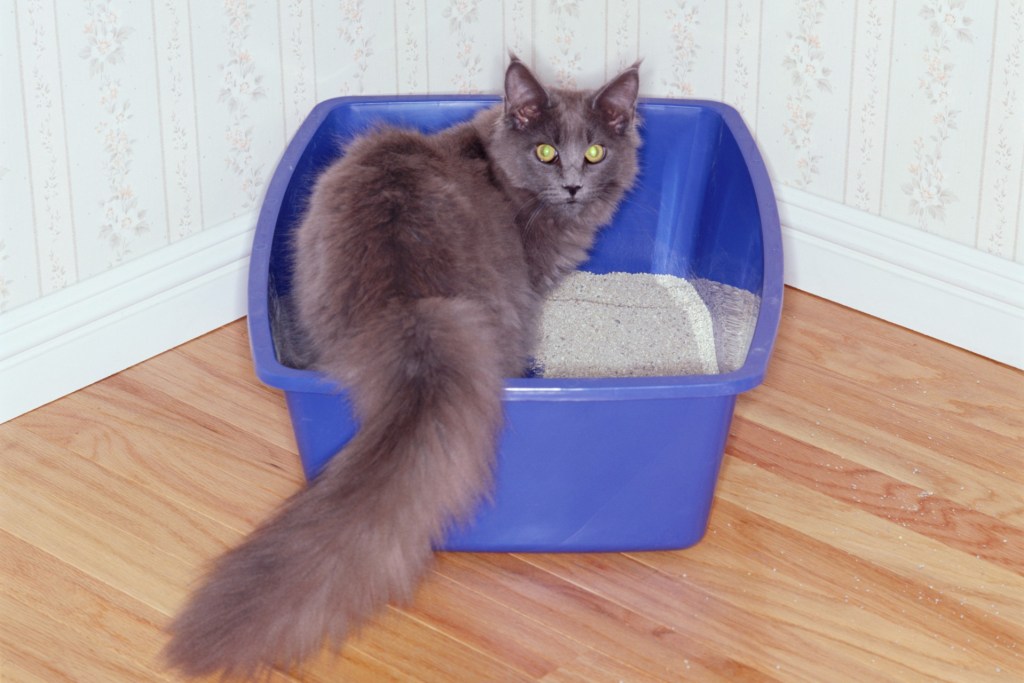
Remember that your cat may be allergic to multiple things in your home, and he can also be allergic to different ingredients in different types of litter. Removing and changing his litter could improve his allergies, but it may not eliminate them altogether. Your vet can explore other potential allergens that are bothering your cat and might recommend a food-elimination diet or even allergy testing to pinpoint what he is allergic to. Managing your cat’s allergies can take some hard work and persistence, but it can pay off with a healthier, happier cat.
Editors' Recommendations
- What you need to know about your cat’s swollen lip – what caused it and how to help it heal
- Is incense bad for cats? 4 important things to consider before using it in your home
- Why do cats stick out their tongues? Here are several surprising (and mostly harmless) reasons
- White cats are at risk for these 3 conditions – find out what they are
- Can cats eat blueberries? What you need to know


